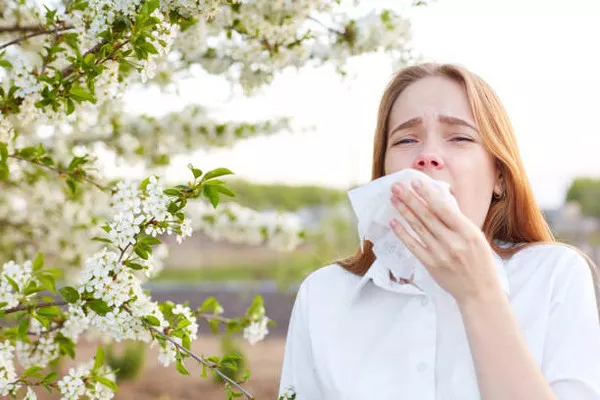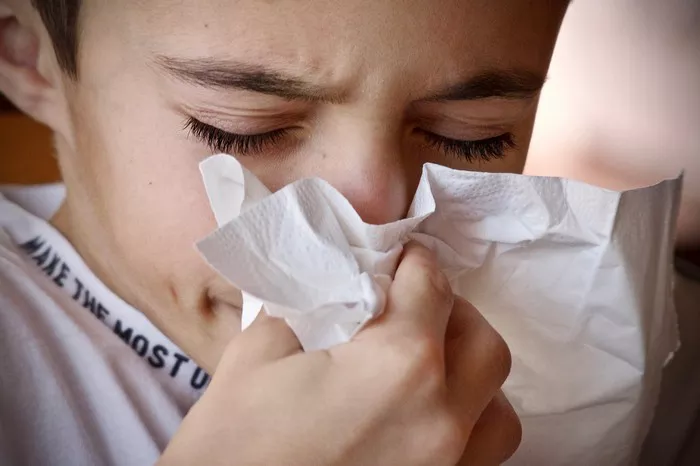Allergies affect millions of people worldwide, triggering a range of symptoms that can range from mild discomfort to life-threatening reactions. While allergens come in many forms, ranging from pollen and pet dander to certain foods and medications, there is one culprit that stands out as the most common trigger of allergic reactions. In this comprehensive article, we will delve into the world of allergies, explore the most common allergen, examine its prevalence, symptoms, and potential complications, and provide insights into managing and preventing allergic reactions. By shedding light on this prevalent allergen, we aim to empower individuals to identify and mitigate their allergy risks effectively.
Understanding Allergies: A Brief Overview
Allergies are immune system responses to substances that are typically harmless to most people but trigger allergic reactions in individuals with sensitivities. When exposed to an allergen, the immune system produces antibodies called immunoglobulin E (IgE), which trigger the release of histamine and other chemicals that cause allergy symptoms. Common allergy symptoms include sneezing, itching, watery eyes, nasal congestion, skin rashes, and difficulty breathing. In severe cases, allergic reactions can lead to anaphylaxis, a life-threatening condition characterized by swelling of the throat, difficulty breathing, and a sudden drop in blood pressure.
Identifying the Most Common Allergen
While allergies can be triggered by a wide range of substances, including pollen, dust mites, mold spores, pet dander, insect stings, certain foods, and medications, there is one allergen that stands out as the most common trigger of allergic reactions:
Pollen: The Most Common Allergen
Pollen is a fine powder produced by plants, trees, grasses, and weeds as part of the reproductive process. When released into the air, pollen grains can be inhaled or come into contact with the skin or mucous membranes, triggering allergic reactions in susceptible individuals. Pollen allergies, also known as hay fever or allergic rhinitis, are particularly prevalent during certain times of the year, such as spring and fall, when pollen levels are high. Common symptoms of pollen allergies include sneezing, runny or stuffy nose, itchy or watery eyes, coughing, and wheezing.
Understanding Pollen Allergies: Prevalence and Impact
Pollen allergies affect millions of people worldwide, with prevalence rates varying depending on geographic location, climate, and local vegetation. In the United States, pollen allergies affect an estimated 10 to 30 percent of the population, making them one of the most common allergic conditions. Pollen allergies can have a significant impact on quality of life, leading to symptoms that interfere with daily activities, work, school, and sleep. Additionally, pollen allergies can exacerbate other respiratory conditions, such as asthma, and increase the risk of sinus infections and ear infections.
Managing Pollen Allergies: Strategies for Relief
While pollen allergies cannot be cured, there are several strategies that individuals can use to manage their symptoms and reduce their exposure to pollen:
Monitor Pollen Counts: Stay informed about local pollen counts by checking weather forecasts or using online pollen tracking tools. Limit outdoor activities on days when pollen levels are high, particularly during peak pollen seasons.
Keep Windows Closed: Keep windows and doors closed during peak pollen seasons to prevent pollen from entering your home. Use air conditioning with high-efficiency particulate air (HEPA) filters to help filter out pollen and other allergens.
Practice Good Hygiene: Shower and change clothes after spending time outdoors to remove pollen from your skin and hair. Wash bedding and curtains regularly in hot water to remove pollen particles that may have settled.
Use Allergy Medications: Over-the-counter and prescription allergy medications, such as antihistamines, decongestants, nasal corticosteroids, and eye drops, can help alleviate allergy symptoms. Talk to your doctor or allergist about the best treatment options for your specific symptoms and medical history.
Consider Allergy Immunotherapy: Allergy immunotherapy, also known as allergy shots or sublingual immunotherapy (allergy drops), can help desensitize the immune system to specific allergens over time, reducing the severity of allergic reactions. This treatment may be recommended for individuals with severe or persistent allergies that do not respond adequately to other treatments.
Preventing Allergic Reactions: Tips for Allergy Management
In addition to managing pollen allergies, it is essential for individuals with allergies to take proactive steps to prevent allergic reactions and minimize their exposure to allergens:
Identify Triggers: Work with an allergist to identify your specific allergy triggers through allergy testing, such as skin prick tests or blood tests. Knowing your triggers can help you take appropriate precautions to avoid exposure.
Create an Allergy Action Plan: Develop an allergy action plan with your healthcare provider that outlines steps to take in the event of an allergic reaction. Make sure family members, friends, and coworkers are familiar with your action plan and know how to administer emergency medications, such as epinephrine auto-injectors (e.g., EpiPen), if needed.
Carry Medications: Carry allergy medications, such as antihistamines and epinephrine auto-injectors, with you at all times, especially when traveling or participating in activities that may expose you to allergens.
Wear Medical Identification: Wear a medical identification bracelet or necklace that indicates your allergies and emergency contact information in case of an allergic reaction.
Stay Informed: Stay informed about allergy triggers, treatment options, and emerging research in the field of allergy and immunology. Join allergy support groups or online communities to connect with others who share similar experiences and learn from their insights and experiences.
Conclusion: Navigating the Allergy Landscape
In conclusion, while allergies can be triggered by a wide range of substances, pollen stands out as the most common allergen, affecting millions of people worldwide. Pollen allergies, also known as hay fever or allergic rhinitis, can cause a range of symptoms, from sneezing and nasal congestion to itchy eyes and coughing. By understanding the prevalence, symptoms, and impact of pollen allergies, individuals can take proactive steps to manage their symptoms, reduce their exposure to pollen, and prevent allergic reactions. With proper management and support, individuals with pollen allergies can enjoy improved quality of life and better control over their allergy symptoms.
[inline_related_posts title=”You Might Be Interested In” title_align=”left” style=”list” number=”6″ align=”none” ids=”7375,7311,7317″ by=”categories” orderby=”rand” order=”DESC” hide_thumb=”no” thumb_right=”no” views=”no” date=”yes” grid_columns=”2″ post_type=”” tax=””]



































